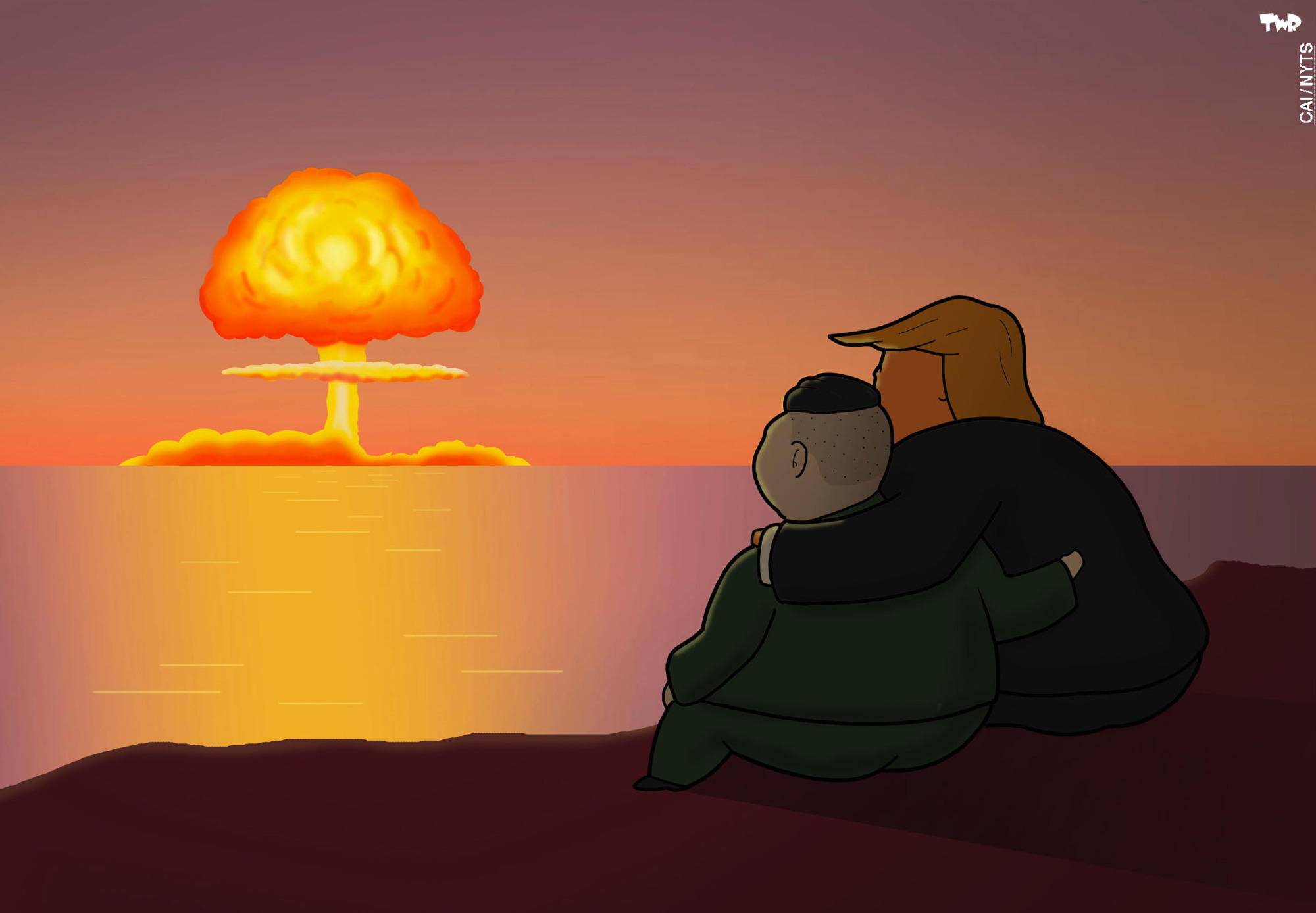For much of the last few decades, powerful speakers on the South Korean border have blasted propaganda to nearby North Koreans, everything from K-pop songs to news about the number of cars in the affluent South. On Monday, they stopped — the latest step in a high-stakes diplomatic dance.
Coming before Friday's North-South summit that will set the tone for a proposed meeting between North Korean leader Kim Jong Un and U.S. President Donald Trump, the move was more than just symbolic. Slowly and through painstaking negotiations, Washington and the two Koreas are sketching out a deal to avoid what all sides feared was an increasingly inevitable war.
How successful that will be — and whether Kim truly gives up his nuclear program — remains in question. Kim's regime is fiercely paranoid about the outside world, long believing only military force — including nuclear — will truly safeguard it from external dangers. Its recent advances have seriously alarmed the United States, generating threats of military action — and only a titanic and remarkably shrewd effort by Seoul has kept diplomacy alive. Now, however, it may be bearing fruit.



















With your current subscription plan you can comment on stories. However, before writing your first comment, please create a display name in the Profile section of your subscriber account page.